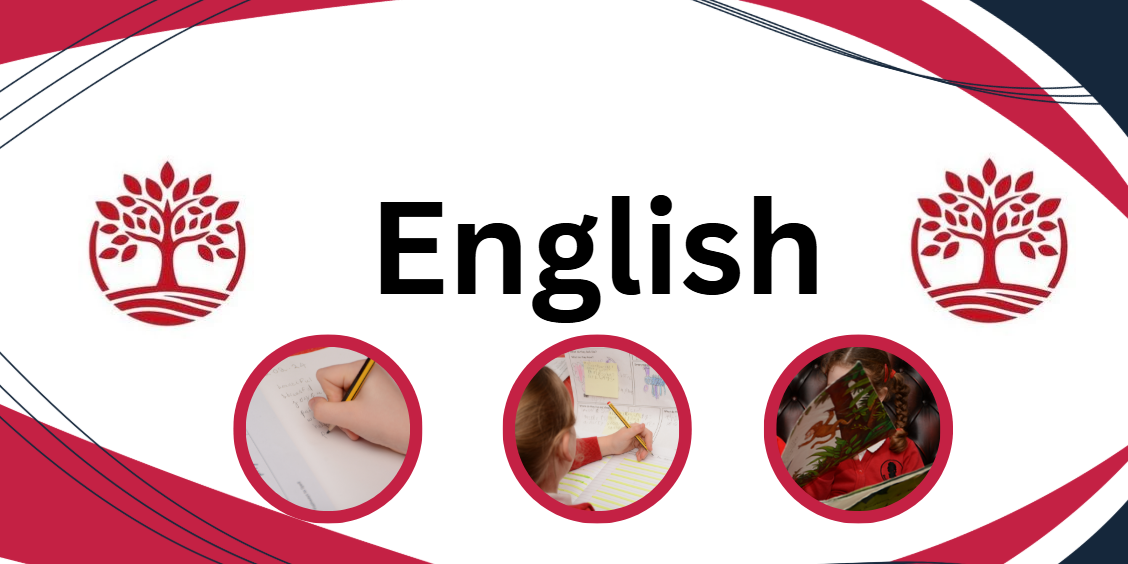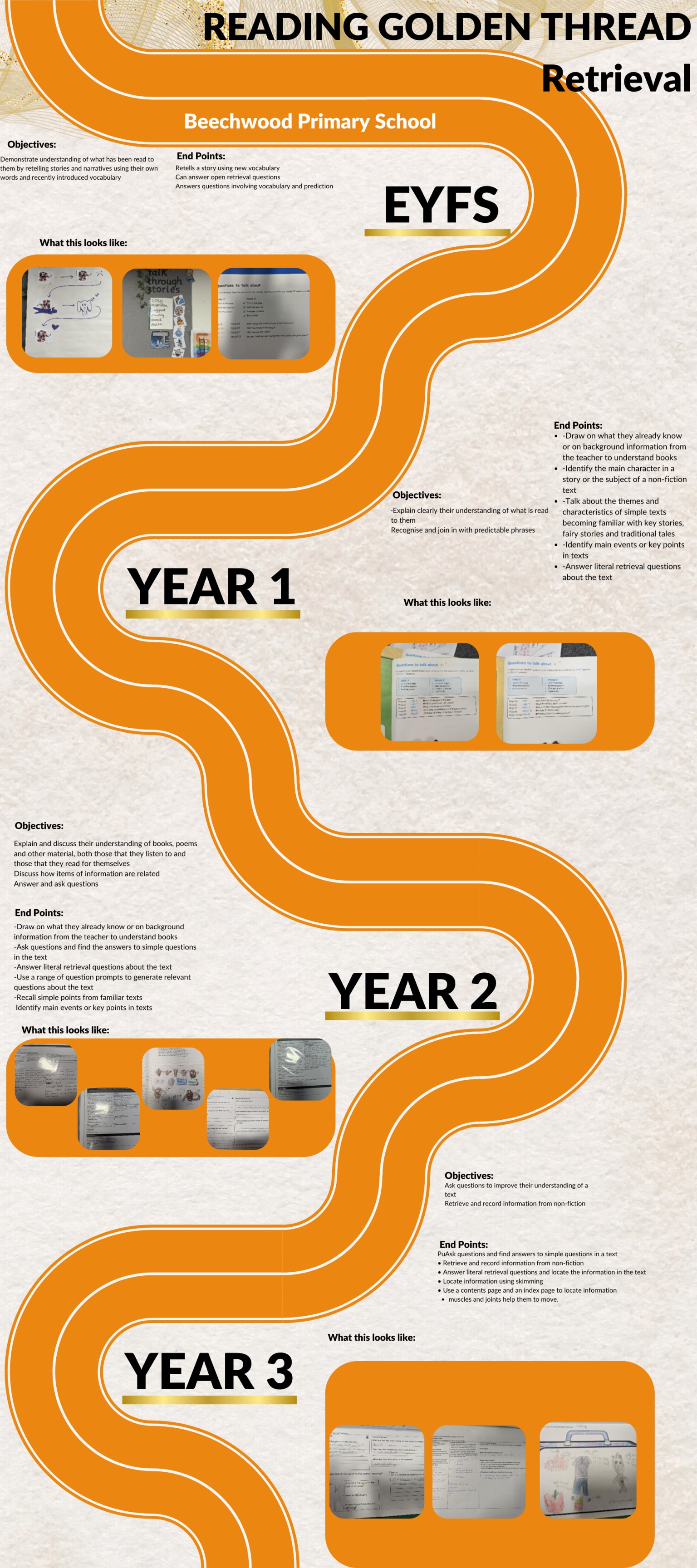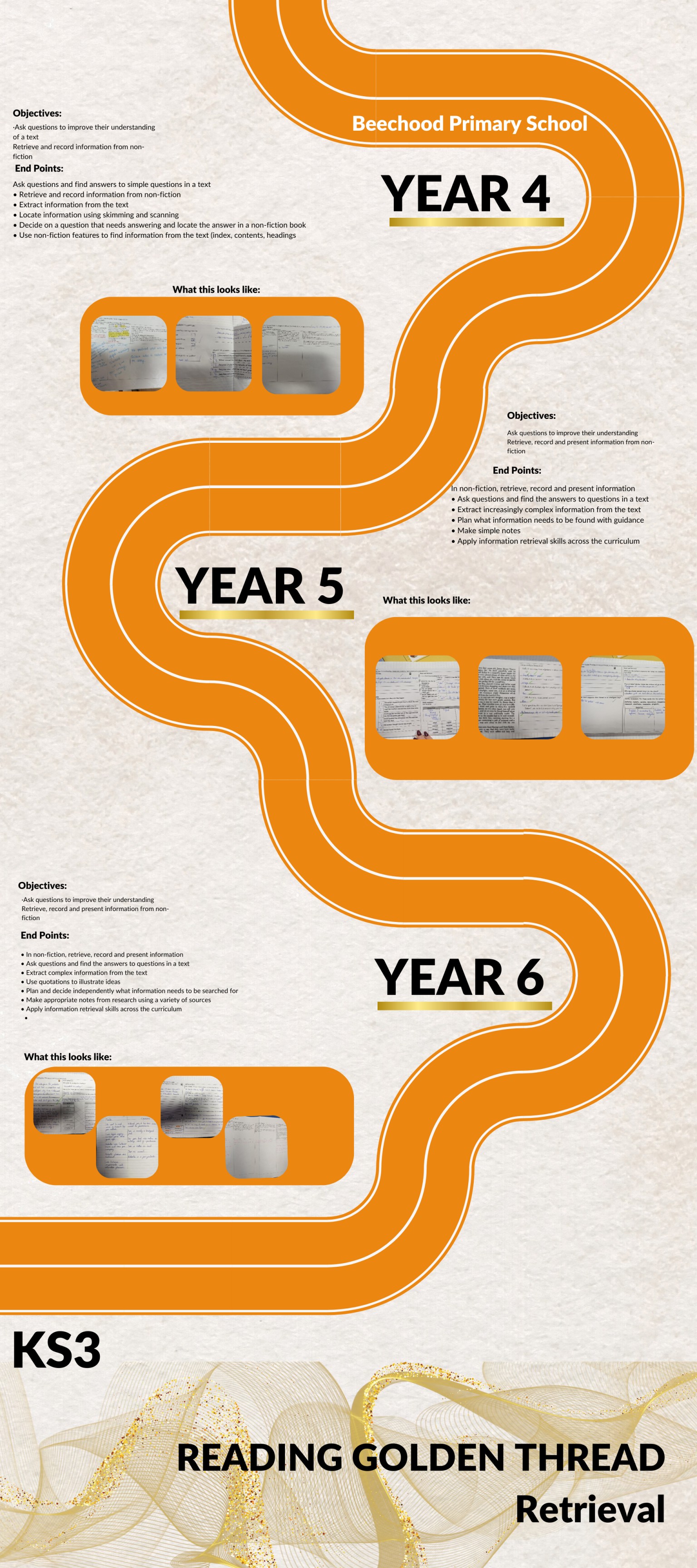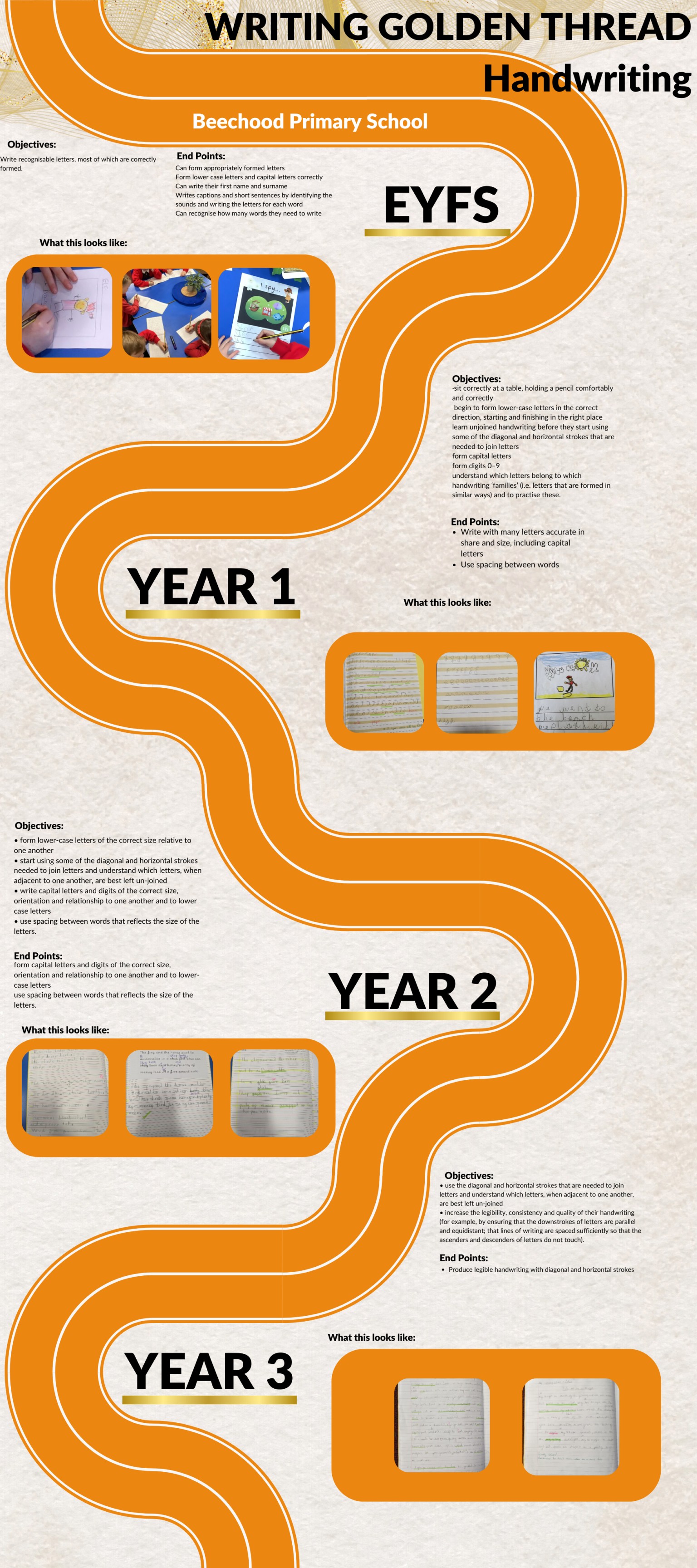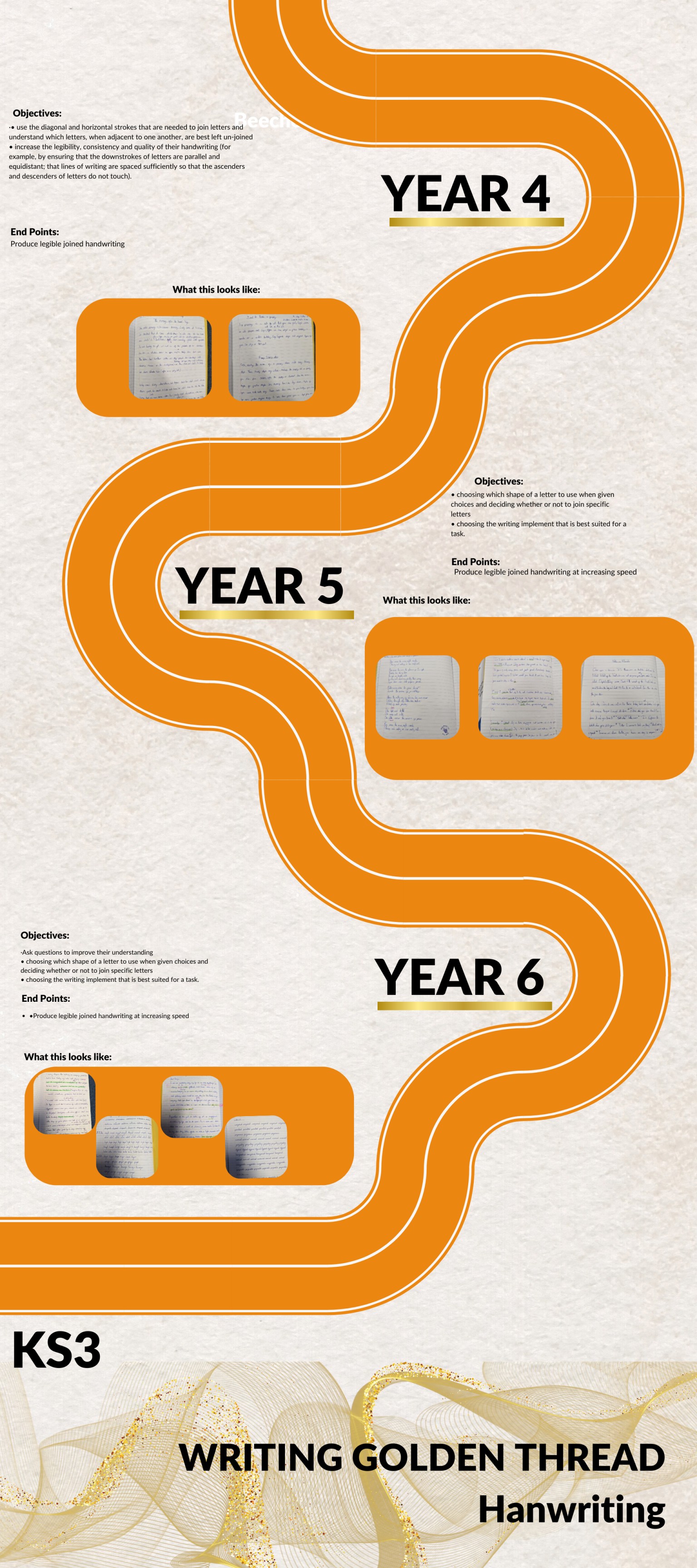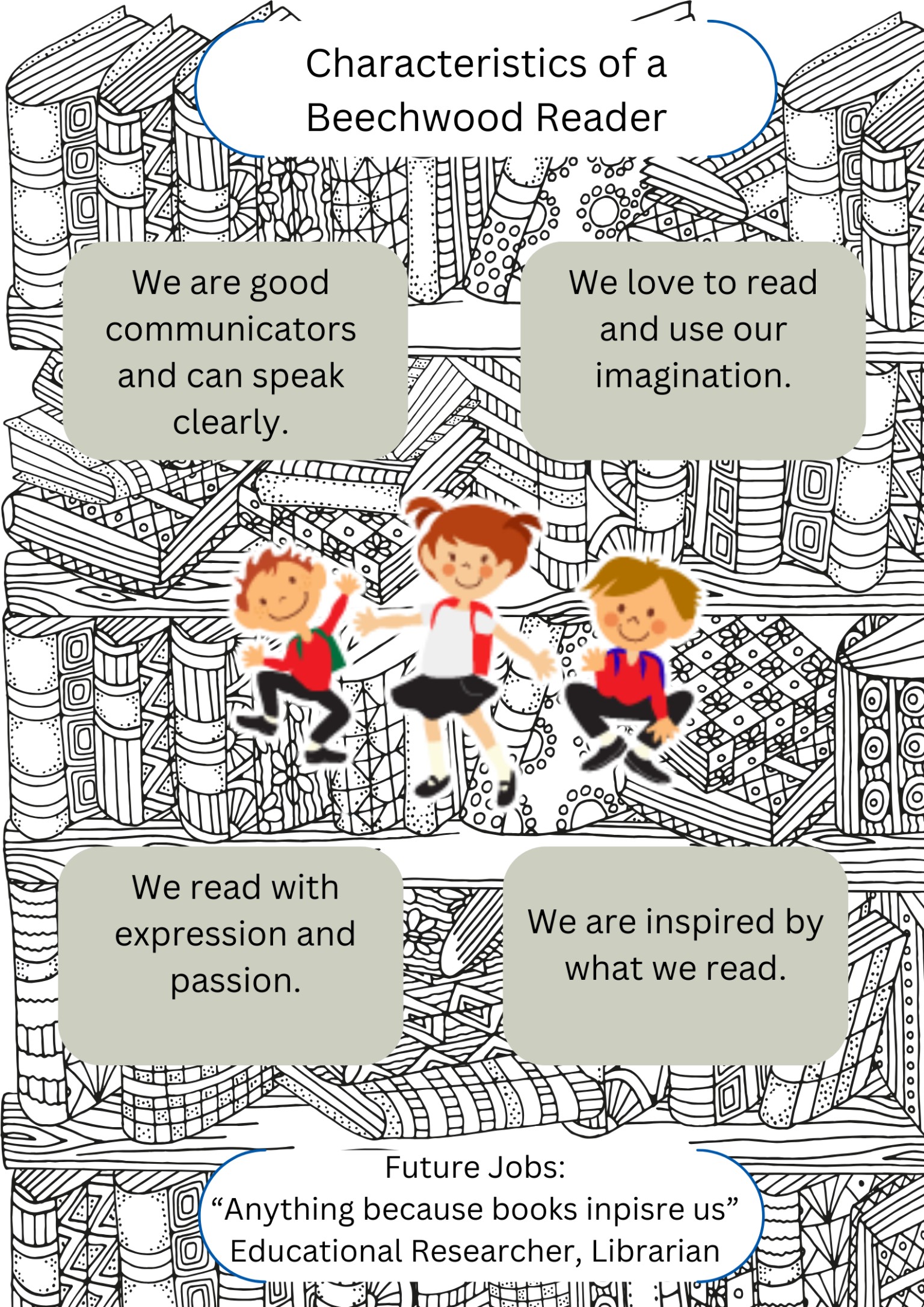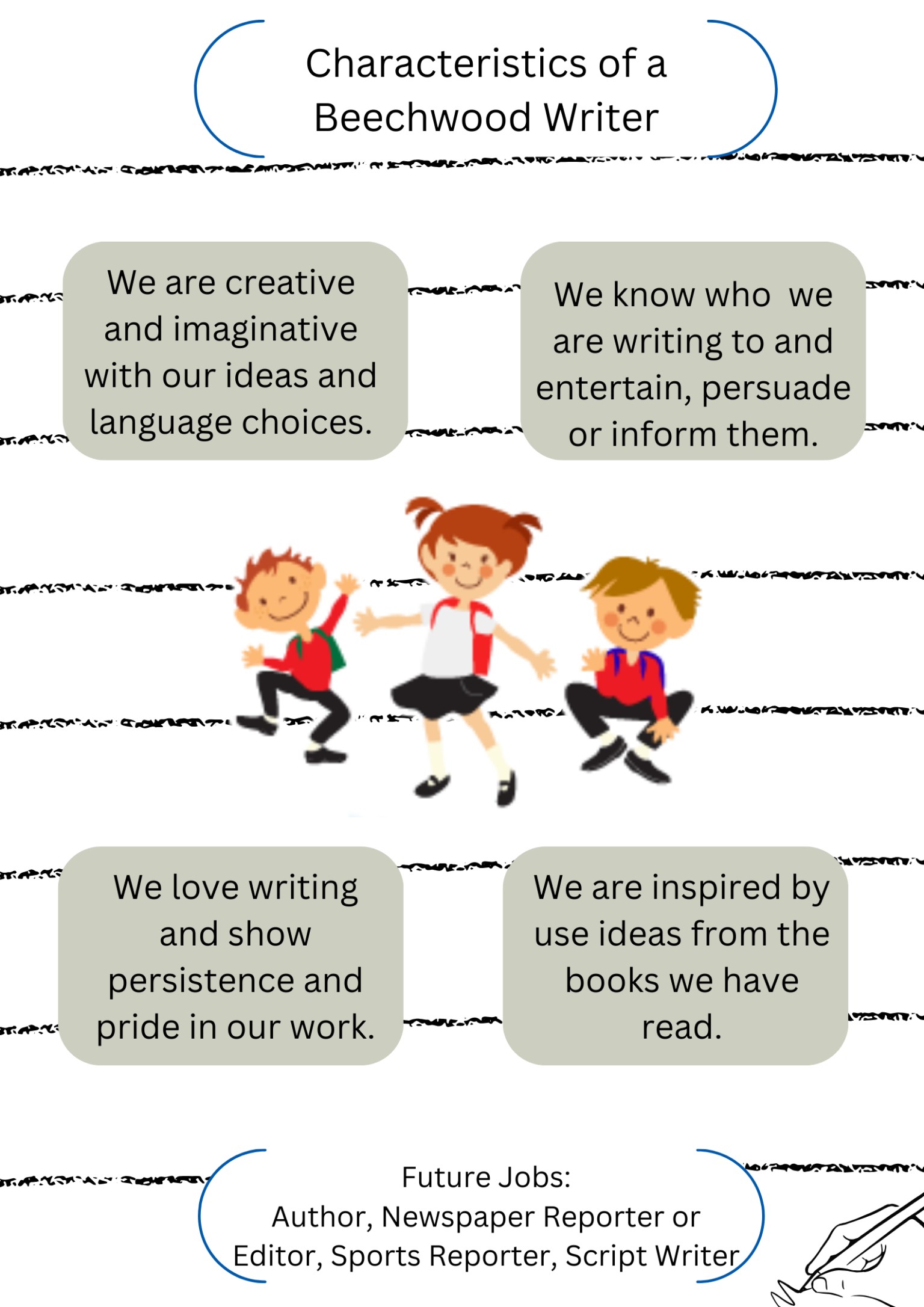Intent
At Beechwood we want our children to think for themselves and care for others. Our aim is to enable children to access and understand the world using a wide range of vocabulary, high-quality texts, and engaging writing opportunities. Our curriculum is underpinned by a love of books. Our children are taught to 'Read as a Reader', 'Read as a Writer' and 'Write as a Writer', encouraging them to write independently: driven by their own ideas and creativity. By exposing our children to a range of texts, we want our children to be exposed to a range of cultures and characters: using books as both mirrors (where their own lives are reflected) and windows (where they gain an insight into the lives of others).
Implementation
Reading, Phonics and Spelling
In the Foundation stage and Key Stage 1, children learn phonics and early reading and writing through the Read Write Inc. programme, which is taught every day alongside additional reading, writing, and grammar-focused lessons.
RWI is a developmental program designed to systematically teach children reading, spelling, and writing skills, starting from early years through the primary school years. It uses a "stage not age" approach, providing structured, daily phonics instruction to help children develop from learning letter sounds to fluent reading and confident writing, with a focus on building comprehension and vocabulary along the way. Regular assessments take place to specifically target pupils areas of need.
Once children complete the RWI phonics programme, they start to access our chosen spelling scheme: Pathways to Spelling. This is a progressive programme which teaches children about key spelling rules. A spelling week consists of: a review lesson, explain and practice and apply and reflect. In addition to this children are then given further oppurtunities to practice their knowledge through handwriting practice and games.
Children are taught reading through our Pathways to Read scheme. This programme is based on high-quality texts which children explore across a half term through a mix of whole class lessons and group reading. Each reading lesson follows a structure of: prediction, clarify vocabulary, developing fluency and retrieval with then further practice of a key comprehnsion skill
Writing
The National Curriculum (2014) forms the basis of all writing teaching, we have then further created an in depth writing curriculum driven by research. We use our Pathways to Read texts as a basis for our writing. This text-based approach allows pupils to be inspired by high quality texts and make connections with their learning. Our writing units follow the following structure:
Read as a Reader: following our Pathways to Read scheme
Read as a Writer: Consider how writers create an impact with their writing, this may look like text decomposition or vocabulary tasks
Write as a Writer: This follows a sequence of plan, draft, edit, improve, produce
In the Early Years, pupils are taught writing using Greg Botrill's Drawing Club. This programme ignites children's imaginations through storytelling and drawing, developing language, fine motor, and early writing skills in a fun, magical, and engaging way. Children will embark on literary adventures, transform their pencils into wands, and build new vocabulary as they bring stories to life through their own drawings.
Impact
Our English and Phonics programme empowers pupils to become confident, thoughtful communicators who read with understanding and write with purpose. Through a strong foundation in phonics and a rich, engaging English curriculum, children learn to think deeply about language, develop a love of reading, and express themselves clearly. Beyond academic success, our approach nurtures empathy, encouraging pupils to care about the stories, ideas, and people around them. This supports their personal development, helping them grow into articulate, considerate individuals ready to thrive in the wider world.
By regularly assessing pupil's phonics, we can ensure that they are targeted based on their own ability and can adapt our teaching based on the needs of the pupils.
Writing is assessed through teacher assessment: we provide regular oppurtunities for independent writing so that we can develop an understanding of our pupils next steps. Daily retrieval tasks allow us to review pupil's learning and encourage their knowledge to develop into long-term memory.

